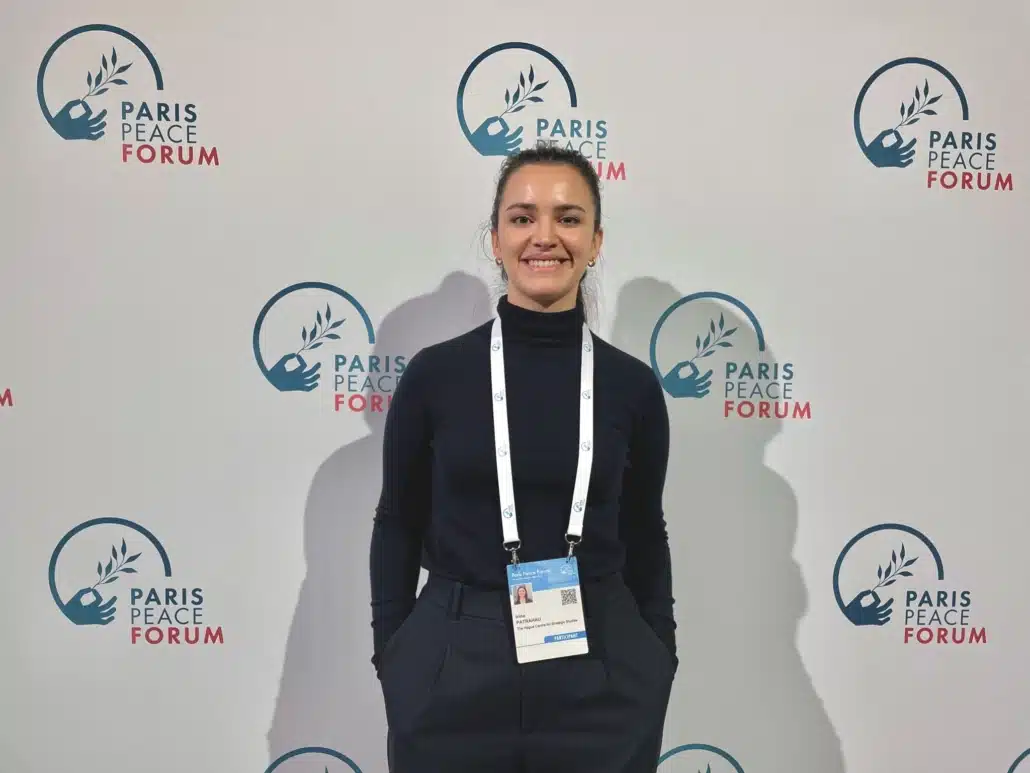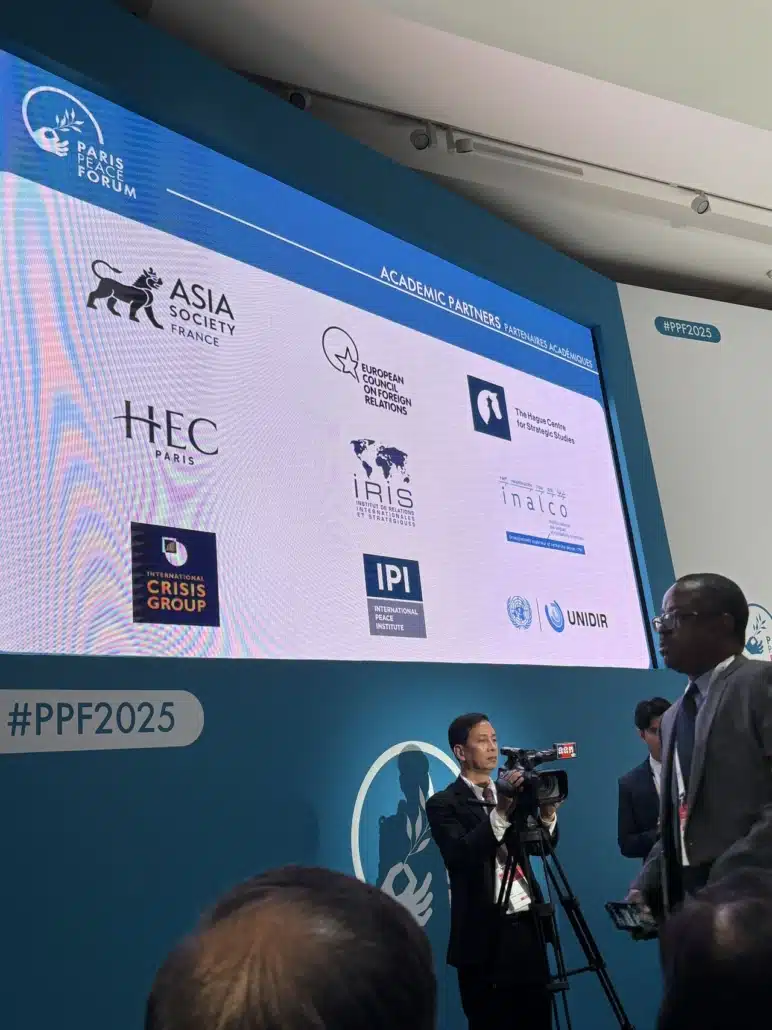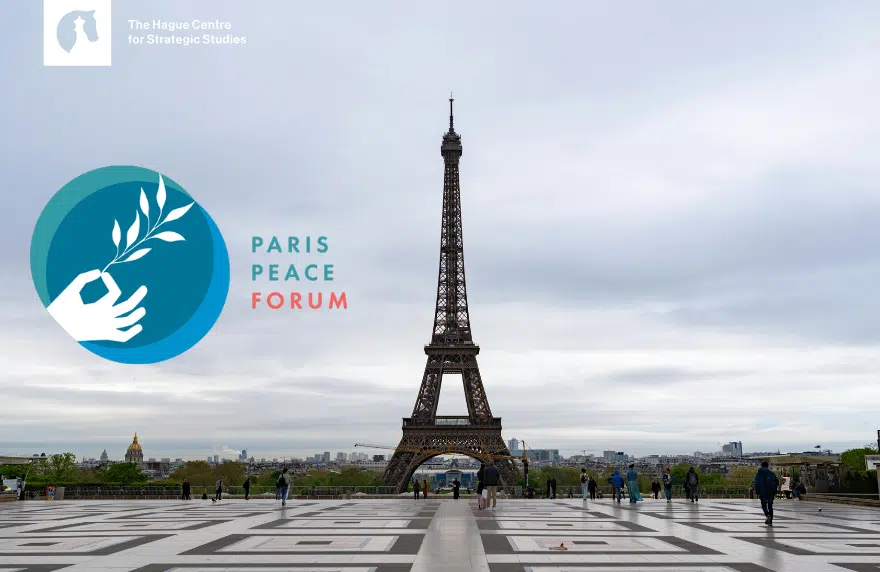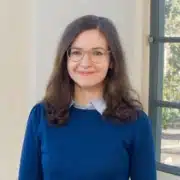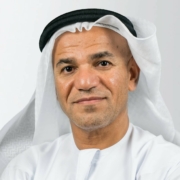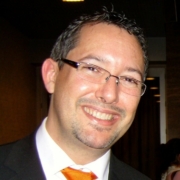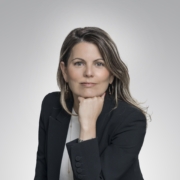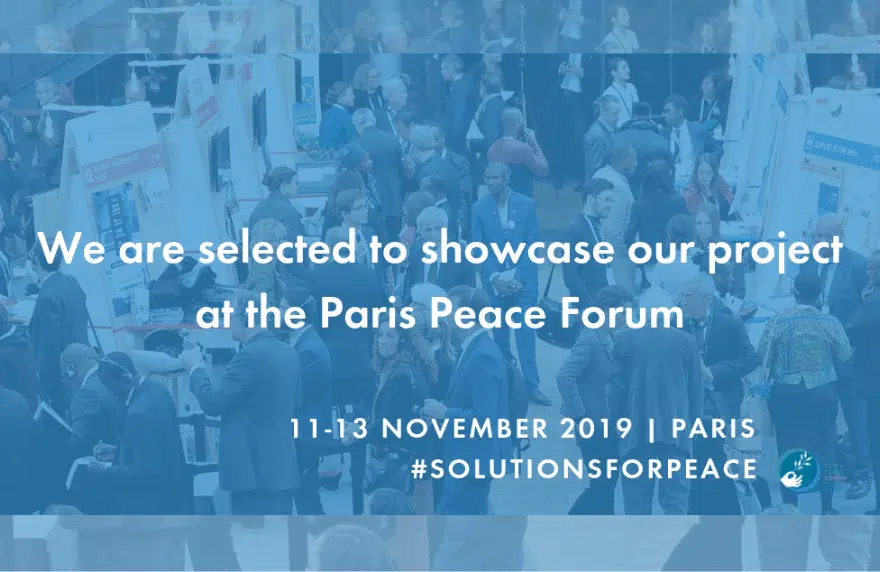A HCSS delegation was present at the 8th edition of the Paris Peace Forum consisting of Deputy Director Michel Rademaker and Strategic Analysts Sofia Romansky and Irina Patrahau. The 2025 forum took place from 29-30 October.
Michel Rademaker at the Paris Peace Forum 2025
The Paris Peace Forum took place with active participation from HCSS – The Hague Centre for Strategic Studies. Michel Rademaker joined colleagues Sofia Romansky and Irina Patrahau in discussions on the The Global Commission on Responsible Artificial Intelligence in the Military Domain (GC REAIM) and Critical Raw Materials.
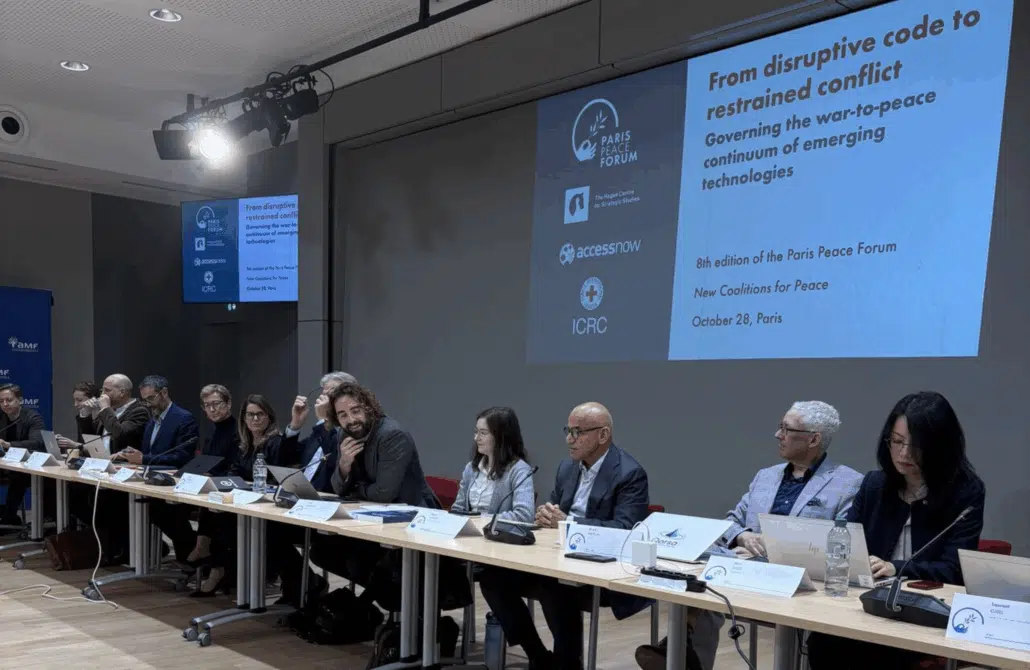
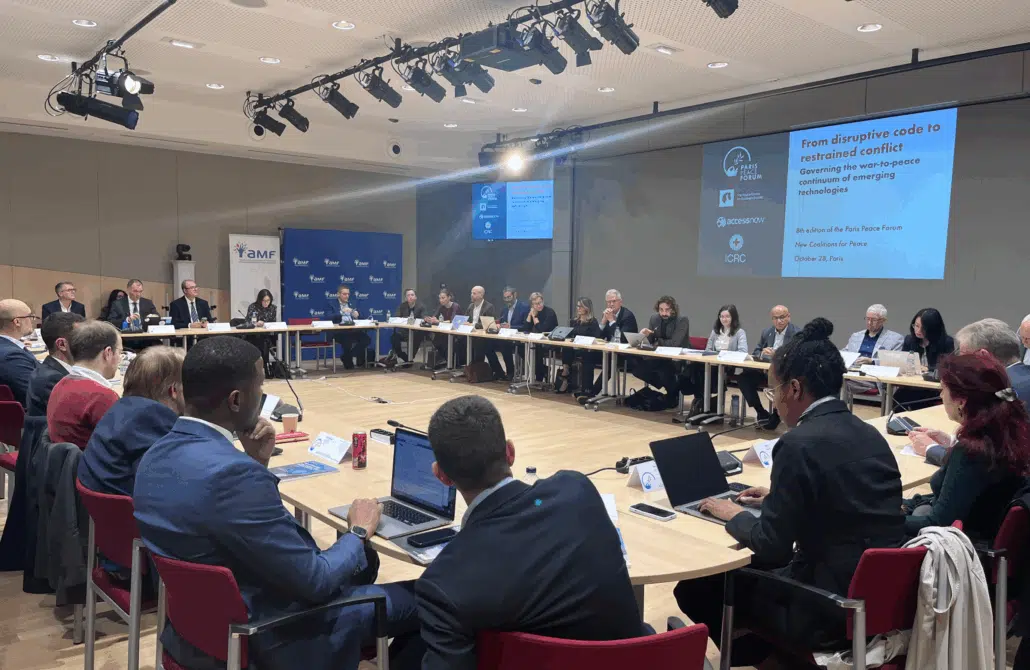
Sofia Romansky at the Paris Peace Forum 2025
Last week, the Global Commission on Responsible Artificial Intelligence in the Military Domain (GC REAIM), represented by Commissioner Saeed Aldhaheri, Commissioner Bruce Watson, Expert Nayat Sanchez-Pi, and Project Coordinator Sofia Romansky shared the findings and recommendations of the GC REAIM Strategic Guidance Report at the Paris Peace Forum Day 0 Seminar “From disruptive code to restrained conflict: Governing the war-to-peace continuum of emerging technologies“. The GC REAIM members were joined by Ernst Noorman, Ambassador at Large for Cyber Affairs of the Netherlands.
Kicking off the event with an engaging panel, the discussion that unfolded touched on the many aspects that contribute to the complexity of not only governing AI in the military domain, but also reaping the full range of benefits of this potential technology. Not only does responsible governance involve the balancing of various disciplinary perspectives but also the interests of diver stakeholders. The audience members, consisting of government representatives, members of civil society, and industry asked difficult questions, highlighting the perceived tension between the pace of innovation, especially in contexts of crisis, and how governance seemingly lags behind. However, what the GC REAIM panelists emphasised was that this is exactly why a Responsibility by Design framework is necessary: responsibility must be built into the system before the crisis arises for the reliable and legally compliant deployment of these systems.
A enormous thank you to Pablo Rice for convening this Seminar, featuring other key initiatives and contributions by the ICRC and Access Now. The Paris Peace Forum is an ideal venue for these urgent conversations.
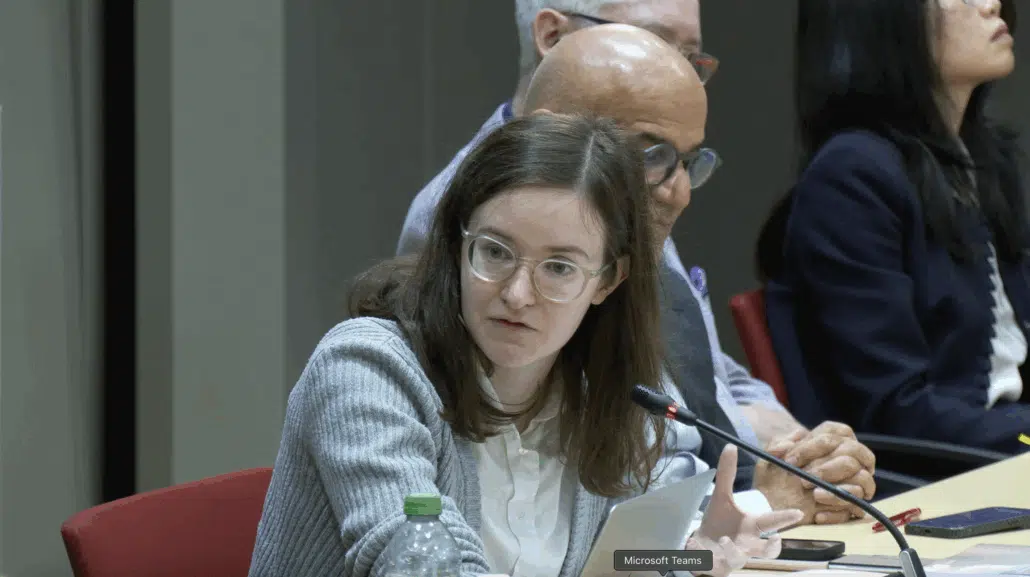
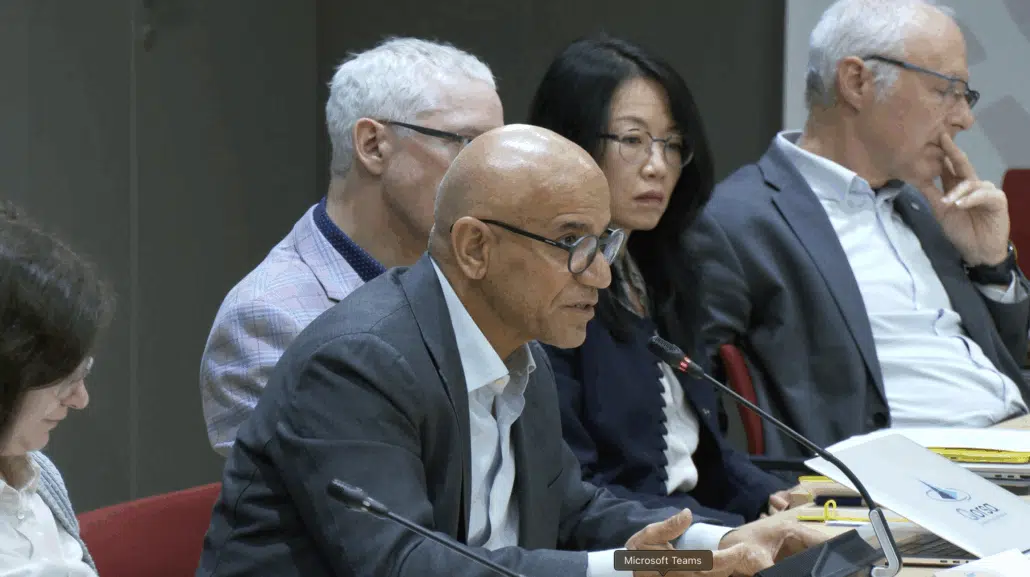
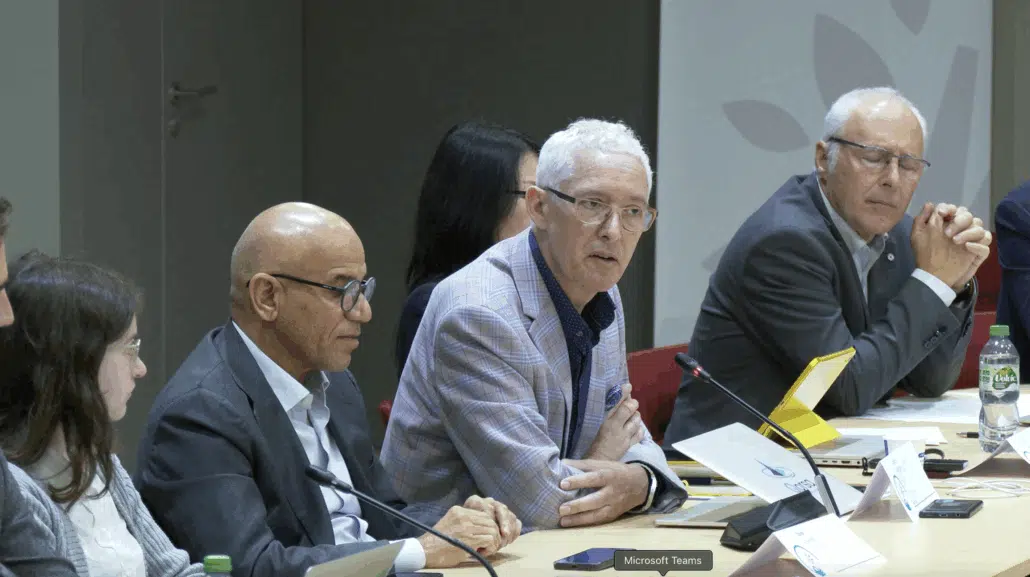
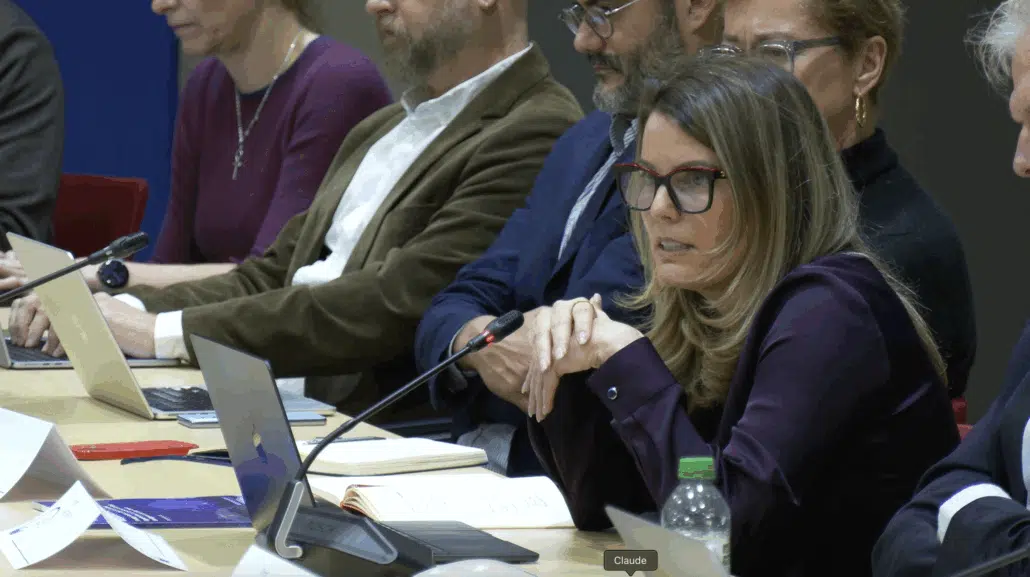
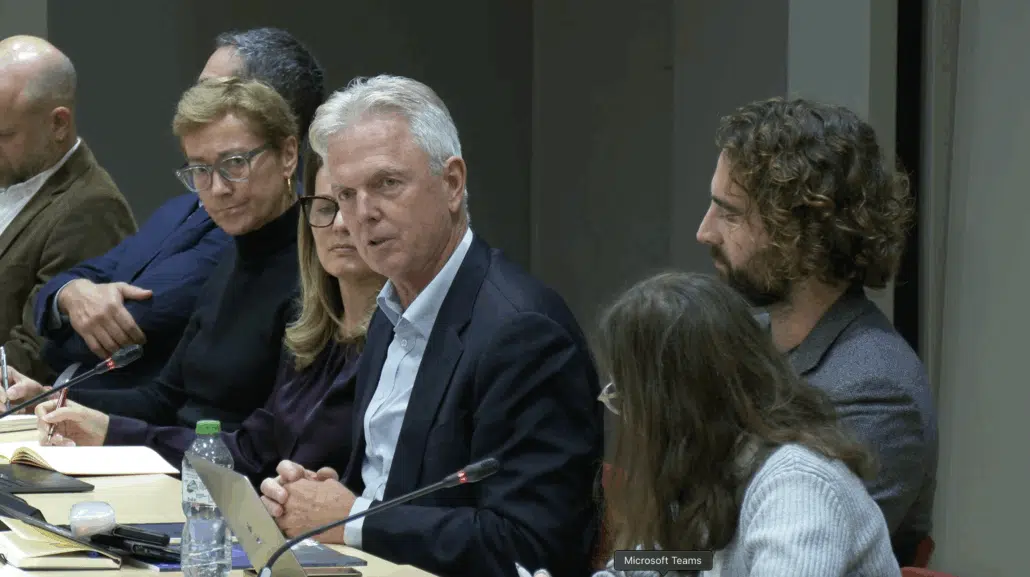
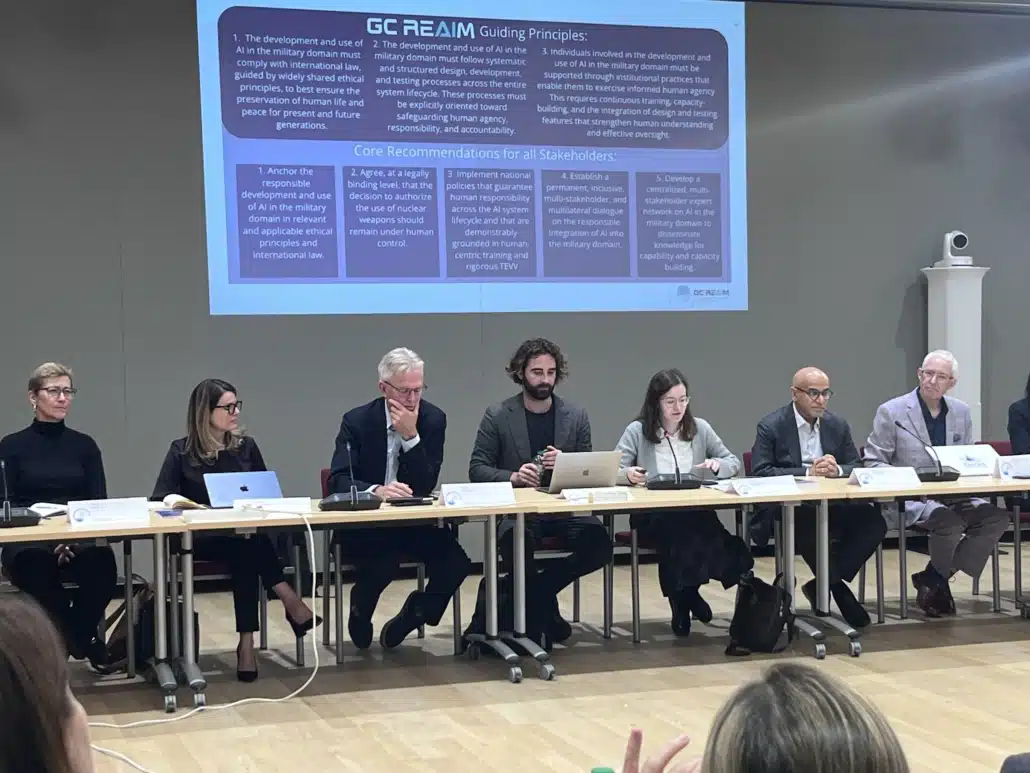
“Minerals, Governance, and Conflicts” | Irina Patrahau at the Paris Peace Forum 2025
On the eve of the 8th edition of the Paris Peace Forum, HCSS strategic analyst Irina Patrahau spoke at a pre-event on responsible mineral investment and supply chain resilience.
Part of a series of partner-led panels, organised by the OECD, Global Witness, and the United Nations Department of Peace Operations, these sessions explore how global and local actors can ensure that the accelerating demand for minerals drives justice, peace, and sustainability rather than conflict or exploitation, convening leading public, private and civil society actors from around the globe under the theme “New Coalitions for Peace, People and the Planet”.
As global competition for critical minerals intensifies, responsible investment and supply chain resilience are becoming central to both sustainability and security.
During the panel “Exploring the link between responsible mineral investment in an evolving security landscape and mineral supply chain resilience,” Irina Patrahau joined renowned experts to discuss how investors can strengthen mineral supply chains and stability.
Panelists:
- James Megoran, Director of the Global Centre for Peacebuilding and Business
- Irina Patrahau, Strategic Analyst, HCSS
- Alan Bryden, Head of Business and Security, DCAF
- Emmanuel Mali Makumba, Director of Peace and Security, ICGLR
- Moderation by Louis Maréchal, Senior Advisor, OECD
Responsible mineral sourcing in conflict-affected and high-risk areas (CAHRAs) requires coordinated multistakeholder action, including investor engagement. This session explored the role that investors can have to promote responsible mineral investment in evolving security landscapes. The discussion considered practical instruments or tools that investors can use to support their decision-making process, as well as ongoing initiatives which seek to provide investors with information to manage conflict risks in producing countries.
Patrahau shared insights from HCSS research on how geopolitical shifts, ESG factors, and data-driven early warning systems can help identify and manage risks in mineral supply chains — ensuring that mining in conflict-affected and high-risk areas (CAHRAs) becomes a driver of stability, growth, and resilience, rather than conflict.
For resource-rich countries, heightened demand offers a strategic opportunity for value creation through increased revenues, job creation, and progress toward the Sustainable Development Goals (SDGs). Yet, as demand surges, Energy Transition Minerals (ETMs) have become a key geopolitical asset, exposing supply chains to fragmentation, resource nationalism, and conflicts, as seen with the energy crisis following Russia’s invasion of Ukraine, the conflict in the DRC, and the profusion of bi-lateral strategic partnerships and agreements to secure mineral supplies. At the same time, the extraction and processing of these minerals remain associated with widespread environmental degradation, greenhouse gas emissions, and persistent human rights abuses.
At HCSS, Irina chairs the Energy Security and Critical Minerals initiatives within the broader Geoeconomics research pillar.
🔗 Since 2022, the Paris Peace Forum has played a leading role in advancing international and multistakeholder dialogue on this issue, notably through the establishment of the Global Council for Responsible Transition Minerals.
